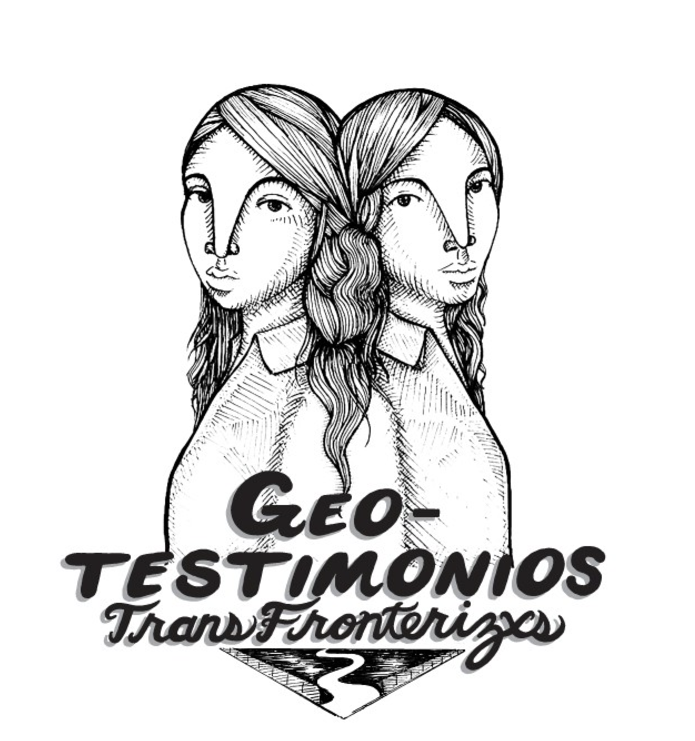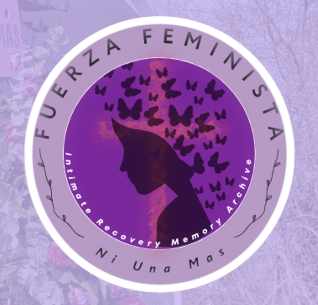TBDH Funded Scholarship
TBDH Scholarship brings together innovative, interdisciplinary, and critical digital work that bridges cultural, linguistic, and geographic borderlands contexts. These translingual materials showcase original research, digital projects, and creative works that examine transborder experiences, with a focus on the United States-Mexico borderlands. The presented work ranges from digital archives and multimedia essays to interactive maps and storytelling platforms, all reflecting a commitment to equity, collaboration, and community-engaged scholarship.
With the support from the Mellon Foundation, these scholarships have been created through mentorship, workshops, and collective inquiry. These projects demonstrate the potential of transborder digital humanities to amplify underrepresented voices, challenge dominant narratives, and envision more equitable futures across borders. Explore the projects below to learn how TBDH fellows and scholars are transforming borderlands narratives.
Author: Jessica V. Corona
Corona, J. (2025). “Datos de violencia de género contra mujeres en la prensa latina en Estados Unidos en el siglo XIX y XX.”
This hybrid thesis, consisting of a digital database and a written document, analyzes the representation and documentation of gender-based violence against border women in the Latino press in the United States during the 19th and 20th centuries, with special attention to newspapers published in El Paso and San Antonio, Texas. Employing an interdisciplinary human–computer interaction methodology, grounded in transborder digital humanities and feminist theory. A Spanish-language database has been developed to systematize and examine how these cases were reported in journalistic discourse. The database documents local, national, and transnational cases of violence, revealing the global structures that sustain them. Its organization into three sections—violence in El Paso and San Antonio, national and transnational violence, and cultural representations of gender—makes it possible to identify linguistic and narrative patterns that have shaped social perceptions of gender-based violence.
This hybrid thesis was directed by Dr. Sylvia Fernández, and committee members, Dr. Glenn Martinez and Dr. Isaura Contreras, professors in COLFA at UTSA. Externally TBDH Co-PIs hybrid advisors were Dr. Carolina Alonso and Dr. Maira E. Álvarez. Hybrid thesis research supported by the College of Liberal and Fine Arts at UTSA, TBDH Fellowship by the Mellon Foundation and the Digital Humanities Student Organization supported by the Responsible Computing Challenge by the Mozilla Foundation.
Copyright guidelines: This database is for academic and community use only. Redistribution for commercial purposes, sale, or modification of its contents is strictly prohibited.
Access: To request access to the database and the written document, please contact the author through email (coronajessica549@gmail.com)

GeoTestimonios Transfronterizxs: Storytelling Project. Project PI: Sylvia Fernández and Gris Muñoz; Student Fellows: Paulina Hernández Trejo, Richard Ramirez, Elisa Castro, Jessica Corona, Cristina Ortiz, and Subadra Tagle.
GeoTestimonios Transfronterizxs is a living border-community storytelling project that reappropriates personal experiences through testimonies and literary narratives about life in the El Paso-Juárez border region. This work is a collaboration between border poet and author Gris Muñoz and academic and digital humanist Sylvia Fernández Quintanilla. It aims to record and preserve the lives, experiences, and voices of women from a variety of racial and ethnic backgrounds living in a particular border area affected by gentrification, lack of mobility, urban policies and changing ecosystems. It will increase awareness of the experiences of women living in the border region as a way to heal and create a trans-border community of solidarity. The project includes an interactive map and digital exhibit of the border region, allowing users to access partly through points in space and in different formats stories of the two border women creating this project, as well as other storytellers who record their own stories in the language/format with which they feel most comfortable.
Author: Elisa B. Castro
Castro, Elisa, Mapeando el mosaico cultural de Viesca: Explorando migración, patrimonio e identidad, 2025. https://storymaps.arcgis.com/stories/ae348af7cf124220b9b44977ce3cd241
Mapping the Cultural Mosaic of Viesca StoryMaps + ArcGIS Map
The interactive StoryMap produced for this project documents regional mobility chronologically through a physical and historical analysis of multiple locations in Viesca. It centers on the causes and consequences of these movements, highlights key historical moments, and includes both contemporary and historical photographs of sites—many of which no longer “exist” in their original form. The mapping platform also allows for overlaying historic maps and images with Viesca’s present landscape, creating a visually rich and dynamic narrative.
This hybrid thesis was directed by Dr. Sylvia Fernández, with committee members Dr. Glenn Martinez and Dr. Isaura Contreras, professors in COLFA at UTSA. External TBDH hybrid advisors included Co-PIs Dr. Laura González and Dr. Sylvia Mendoza. The project also benefited from the guidance of Manuel Lastra López, local archivist in Viesca, Coahuila. Research and development were supported by the College of Liberal and Fine Arts at UTSA, the TBDH Fellowship funded by the Mellon Foundation, Concientizando Comunidades, and the Digital Humanities Student Organization supported by the Responsible Computing Challenge by the Mozilla Foundation.
Access:
To access the ArcGIS Map, visit through this link: https://www.arcgis.com/apps/instant/atlas/index.html?appid=7295e699a59648c7a403d697301cb299&webmap=c1c34d22064745a48b132f7d7f40ed22
To access the StoryMap, visit through this link: https://storymaps.arcgis.com/stories/ae348af7cf124220b9b44977ce3cd241
Copyright guidelines: These digital maps are for academic and community use only. Redistribution for commercial purposes, sale, or modification of its contents is strictly prohibited.

Fuerza Feminista: Archving Memory Digital Project, Project PI Sylvia Fernández and Co-PI Cynthia Bejarano, student fellows: Ivanna Zamudio Treviño, Jessica Corona, Emily Gracielle Rodriguez-Guajarado, Jasbeth Medrano (UTSA), Arantza Zacarias, Natalie Tarwater, Fatima Oliveros, Maria Mendoza (NMSU). https://fuerza-feminista.org
Fuerza Feminista: Intimate Recovery and Memory Archive (FFIRMA) is a transborder digital and public humanities project dedicated to documenting and preserving the legacy of the human rights movement against feminicide and gender-based violence along the U.S.–Mexico border, with a particular focus on Ciudad Juárez, Chihuahua, and the neighboring cities of El Paso, Texas, and Las Cruces, New Mexico. Since 2019, FFIRMA has worked collaboratively with mothers, activists, human rights defenders, and organizations who have been part of this movement since the 1990s. Through the collection of oral histories, personal and intimate archives, and other digital and analog materials, the project builds a feminist archive that honors the individual and collective memories of those who have fought against feminicide, making their experiences, resistances, and knowledge visible.
Author: Elisa B. Castro
Castro, Elisa, Mapeando el mosaico cultural de Viesca: Explorando migración, patrimonio e identidad, 2025. https://cronicasviesquences.omeka.net/
This project examines the complex set of meanings and structures that shape Viesca, Coahuila, Mexico’s cultural identity through the study of transnational collective memory, understood as both historical memory and individual memory, within two states Coahuila in the North of Mexico and Texas in the Southwest of the United States, two dimensions that remain closely intertwined. This work makes it possible to trace the different ways in which the people of Viesca articulate their identity through the transformations of their territory, including the migrations that have taken place within and beyond the region. The project consists of a digital community archive created in collaboration with several inhabitants of Viesca and members of its migrant community in San Antonio, Texas, bringing together oral histories, photographs, documents, and community knowledge to document shared histories across borders.
Articles from the archive were integrated into a digital map in order to trace key historical processes, including the rise and decline of Viesca’s saltworks industry, and situates them within longer histories of displacement that begin with the migration of Indigenous groups and continue into the contemporary diaspora. Using digital humanities tools and transborder, community-engaged methodologies, the project analyzes and visualizes these layered relationships. The aim is to make these histories accessible to broader audiences while highlighting their ongoing social and cultural significance. Through spatial analysis and local testimony, the project brings together overlooked local histories, revealing how community interactions with the natural environment are inseparable from the lasting impacts of colonial violence and structural inequality.
Collections
The collections were created with the intention of being accessible to the people of Viesca as well as to researchers, students, and anyone interested in the town’s history and heritage. They gather the resources used to create the digital maps and timeline included on this site.
The archive is organized into six primary sections, each grouping documents, photographs, and videos generously shared by Viesquenses: 1.Historical Documents and Photographs; 2. Industries and Factories;3. Nature and Territory; 4. Religion and Festivities; 5. Commerce and Urban Life; 6. Culture and Collective Memory.
Exhibitions
The exhibitions (Poems, Books, Field Study, Songs, and Stories and Legends) present artistic and narrative materials that serve as creative and interpretive spaces for understanding Viesca’s culture. Each item reflects aspects of the town’s historical identity and its connection to contemporary cultural life.
Copyright guidelines: This digital archive is for academic and community use only. Redistribution for commercial purposes, sale, or modification of its contents is strictly prohibited.
Access: To access this archive visit through this link: https://cronicasviesquences.omeka.net/